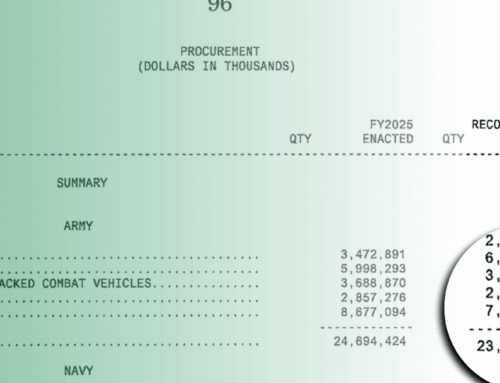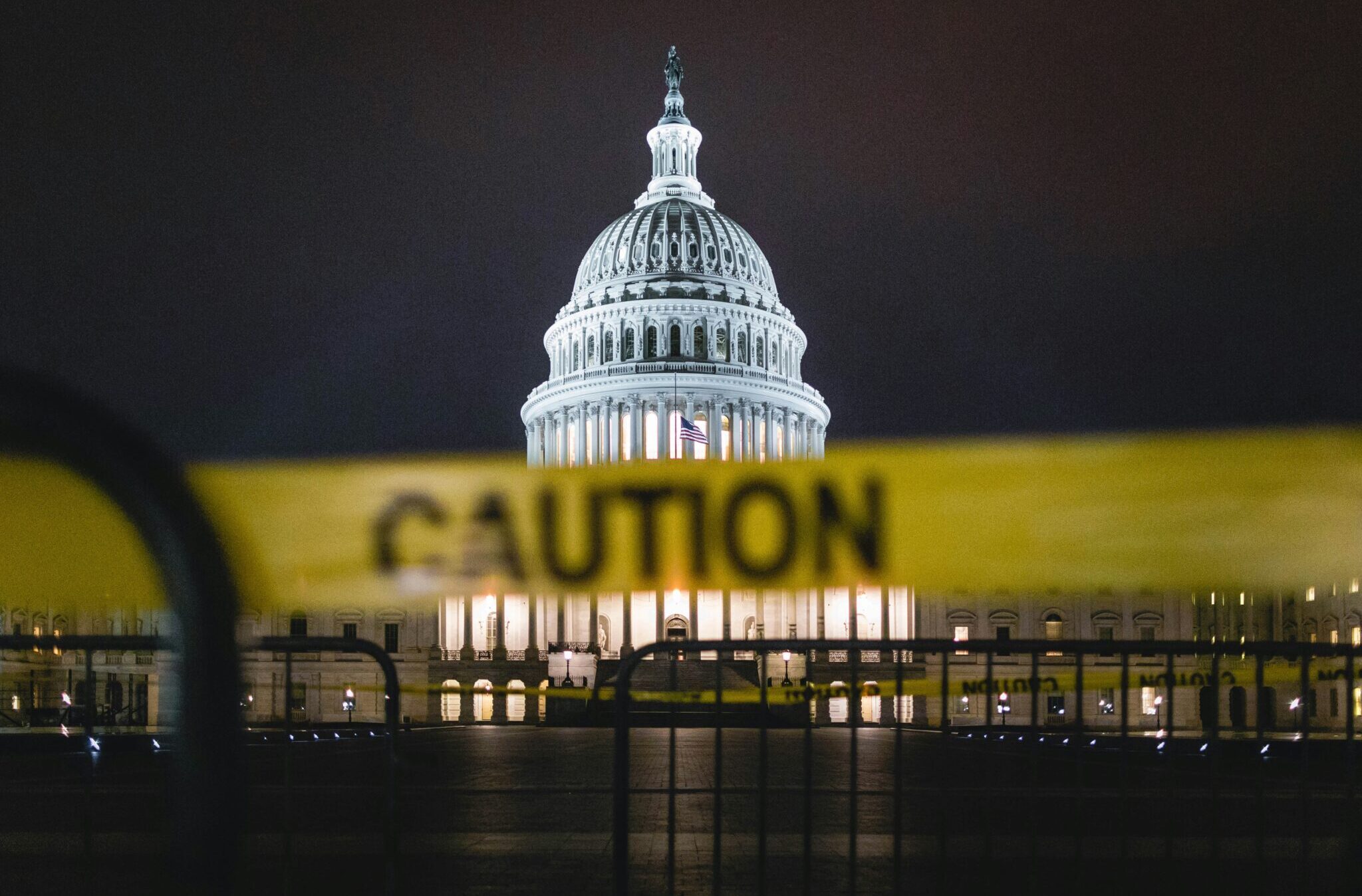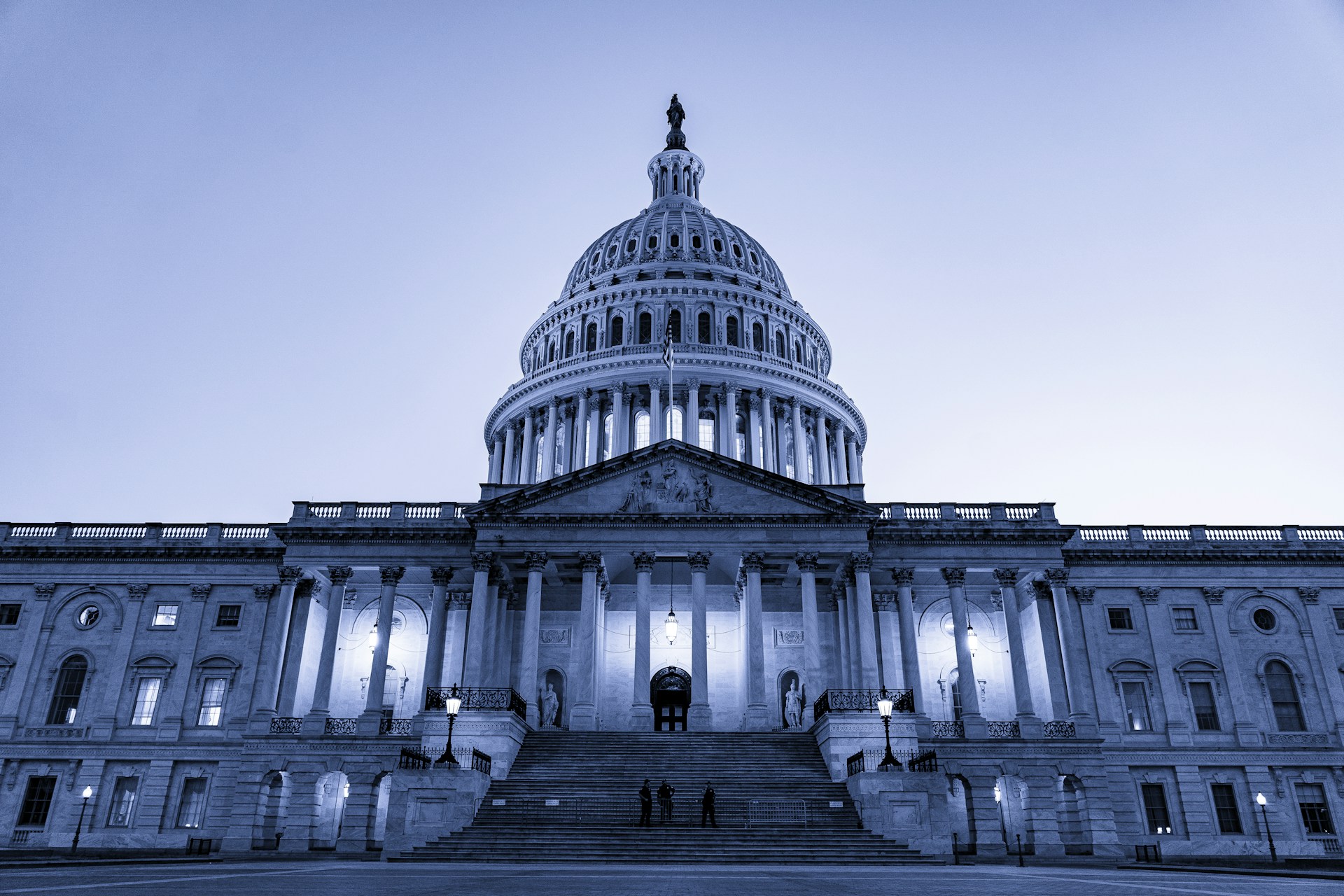It was a busy week on Capitol Hill in the Pentagon policy and spending world, with votes on the House and Senate Pentagon policy bills, as well as on the House Pentagon spending bill. Taxpayers have a couple things to be grateful for, and plenty to be angry about.
On Tuesday, the House Rules Committee passed a rule setting the stage for floor votes on the policy bill, the National Defense Authorization Act or NDAA. They allowed 350 amendments to be debated, pared down from the 1,387 amendments lawmakers submitted to the Rules Committee. Unfortunately, the committee opted to advance a highly partisan set of amendments, many of which passed but will face stiff opposition in the Senate, where Democrats have the majority, setting the stage for a repeat of last year’s Pentagon budgeting process that risked government shutdowns and ran six months behind schedule. Partly because of this approach, a lot of positive and bipartisan amendments were left out of the rule, preventing debates on many issues of grave concern to taxpayers.
Among the positive amendments excluded from the rule was a bipartisan amendment offered by Reps. Jayapal (D-WA), McClintock (R-CA), Garamendi (D-CA), Davidson (R-OH), and Moulton (D-MA) to repeal the requirement for the Pentagon to submit unfunded “priority” lists (UPLs) to Congress. These extrabudgetary wish lists circumvent the normal budget process, undermining its more holistic approach to budgeting for national security by spotlighting unbudgeted requests that don’t consider the entire military’s needs. We said as much in a coalition letter to the Rules Committee encouraging it to include the amendment in the rule. But the committee decided to deprive the American people of a public debate on the issue.
The Rules Committee also excluded amendments to pause funding for the Sentinel ICBM in light of its 37 percent cost overrun, to require the Secretary of Defense to submit a plan to prevent the Pentagon budget request from reaching $1 trillion, and to improve the Pentagon’s access to pricing data to prevent contractors from overcharging the military, among other valuable efforts to protect taxpayers.
Following the rule’s passage in committee, and its passage on the House floor in a razor-thin vote of 208-207, we sent a letter to the House encouraging support for two positive amendments and opposition to several harmful amendments.
One of the positive amendments, offered by Reps. Biggs (R-AZ), Crane (R-AZ), Lee (D-CA), and Pocan (D-WI), passed by voice vote en bloc, meaning as part of a package of amendments that received a single vote. If signed into law, this measure would require any Pentagon agency that fails an audit to forfeit 0.5 percent of its budget to the Treasury for deficit reduction, though it exempts personnel accounts and the Defense Health Program account. This is a big step towards holding the Pentagon accountable for its ongoing failure to pass an audit.
Another, offered by Reps. Norman (R-SC) and Doggett (D-TX), would establish a panel of experts to review contracts for major weapons systems, spare parts, and services to determine whether the Pentagon paid excessive prices and make recommendations to ensure the Pentagon pays fair and reasonable prices in future contracts. This amendment passed by voice vote with no audible opposition.
An amendment we opposed offered by Rep. Greene (R-GA) to prevent funds from being used for electric vehicles or electric vehicle charging infrastructure failed in a vote of 173-241. As we argued in our letter to the House, limiting the use of funds for electric vehicles would undermine the Pentagon’s efforts to reduce operational fuel consumption, which could have a serious impact on military operations in addition to harming efforts to reduce emissions and mitigate taxpayer costs relating to climate change.
But another amendment we opposed that would block a slew of executive orders relating to climate change passed in a vote of 215-210. If ultimately signed into law, this amendment will undermine the administration’s ability to address the growing costs of climate change.
Ultimately, the NDAA passed the House on Friday June 14 in a near-party-line vote of 217-199. Six Democrats voted for the bill, and three Republicans voted against it. Four Republicans and 11 Democrats did not vote.
On Thursday, the House Appropriations Committee marked up its version of the Fiscal Year 2025 Pentagon spending bill. The marked-up version of the bill passed out of committee 34-25 in a largely party-line vote, appropriating $833 billion for the Pentagon.
Mirroring the partisan approach to the NDAA that unfolded on the House floor, the House Appropriations Committee included highly partisan measures in the Pentagon spending bill that will be non-starters for most Democrats. That may ultimately contribute to another drawn out process that risks government shutdowns and funding delays once it is forced to contend with the opposition of the Democrat-controlled Senate, assuming it musters enough support from Republicans to advance at all.
On the other side of the Capitol, the Senate Armed Services Committee held a series of mostly closed-door subcommittee hearings on its version of the NDAA, followed by a closed-door markup of the bill by the full committee. The bill passed out of committee on Thursday in a 22-3 vote.
While the Senate version of the NDAA may appear more measured and reasonable in comparison to the partisan bill taking shape in the House, there was nothing reasonable about the committee’s decision to ignore the spending caps agreed to last year and tack on $25 billion to the Pentagon’s budget request, bringing the total national security spending in the bill to $923 billion. The hike presumably took inspiration from a plan proposed by Sen. Wicker (R-MS) to add $55 billion to the Pentagon budget, which we opposed when he first rolled it out. Hopefully, as these bills advance, enough lawmakers will ultimately agree that adding $55 billion to the Pentagon budget at a time when we’ll soon be paying more servicing our nation’s debt than on the military is a woefully misguided approach to budgeting for national security.










